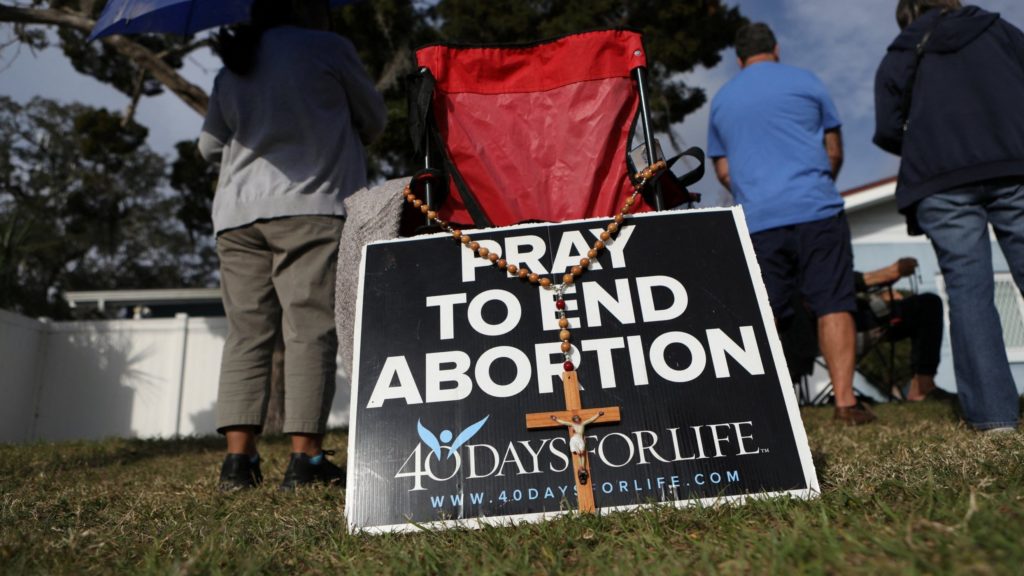The Florida Supreme Court on April 1 simultaneously upheld that the state's Constitution does not protect abortion access and allowed a proposed amendment seeking to do so to qualify for the state's November ballot.
In separate rulings, the Sunshine State's high court upheld the state's 15-week ban on abortion, which will in effect permit the state to enforce a six-week ban known as The Heartbeat Protection Act, which was signed by the state’s Gov. Ron DeSantis, R, in April 2023, and on pause pending the ruling.
If enforced, the Heartbeat Protection Act would prohibit most abortions in Florida, with exceptions for women who are victims of rape or who face a mortality risk associated with the pregnancy. The bill also would make exceptions for cases of a diagnosis of a fatal fetal anomaly until the third trimester. It also allocates some funds to crisis pregnancy centers, and restricts the use of abortion drugs via telemedicine, requiring in-person visits rather than the distribution of those drugs by mail.
But the Florida Supreme Court also said a proposed constitutional amendment to prohibit abortion bans in the state prior to viability qualified for the ballot. If approved by Florida voters in November, its enactment would undo those restrictions on abortion.
Michael B. Sheedy, executive director of the Florida Conference of Catholic Bishops said in a statement the group is "greatly dismayed that the Florida Supreme Court did not reject this deceptively-worded amendment, and that it will appear on the November 2024 ballot."
"Under the guise of limiting government interference, this extreme ballot initiative would legalize full-term abortion, including when the baby is capable of feeling pain," Sheedy said. "If passed, the amendment to our state constitution would put the most innocent of human lives in grave danger until the moment of birth and would eliminate gains made over the past several decades to protect women from the harms of abortion, including health and safety protocols at abortion facilities."
The Florida Conference of Catholic Bishops, he said, "will work hard to oppose this cruel and dangerous amendment and urge all Floridians to vote 'no' on Amendment 4.”
The text of the proposed amendment states: "No law shall prohibit, penalize, delay, or restrict abortion before viability or when necessary to protect the patient’s health, as determined by the patient’s healthcare provider." The text also states that the amendment would "not change the Legislature’s constitutional authority to require notification to a parent or guardian before a minor has an abortion."
Florida Planned Parenthood Action wrote on X, formerly Twitter, "Today, the Court affirmed that Amendment 4 satisfies the requirements for placement on the ballot. Floridians will have the opportunity to reclaim their bodily autonomy and freedom from government interference!"
Katie Daniel, state policy director for Susan B. Anthony Pro-Life America, applauded the court for upholding the restrictions and said pro-life activists must oppose the proposed amendment in November.
“Today’s victory for unborn children who have a heartbeat and can feel pain is in line with the views of the majority of Floridians who want to protect babies and serve mothers and families, Daniel said. "As Florida faces what may be its biggest ballot fight yet, Gov. Ron DeSantis must be at the forefront of protecting Florida from Big Abortion’s attempt to eliminate the rights of unborn children, parents, women, and girls. Gov. DeSantis signed protections for babies who feel pain and have a heartbeat into law and now he must lead in defending those protections."
The proposed Amendment, Daniel said, would "bring dangerous late-term abortions back to Florida" and place women undergoing abortions "at risk when this measure eliminates every abortion health regulation on the books."
"In a state where 25% of abortion centers failed inspections it’s no surprise they want to be completely unregulated to increase their profits at the expense of women, girls and babies,” Daniel said.
The Florida Conference of Catholic Bishops supported the Heartbeat Protection Act.
The Catholic Church teaches that all human life is sacred and must be respected from conception to natural death and, as such, opposes direct abortion as an act of violence that takes the life of the unborn child. In the wake of the Dobbs ruling, the U.S. bishops have reiterated the church’s commitment to serving both women and unborn children.

